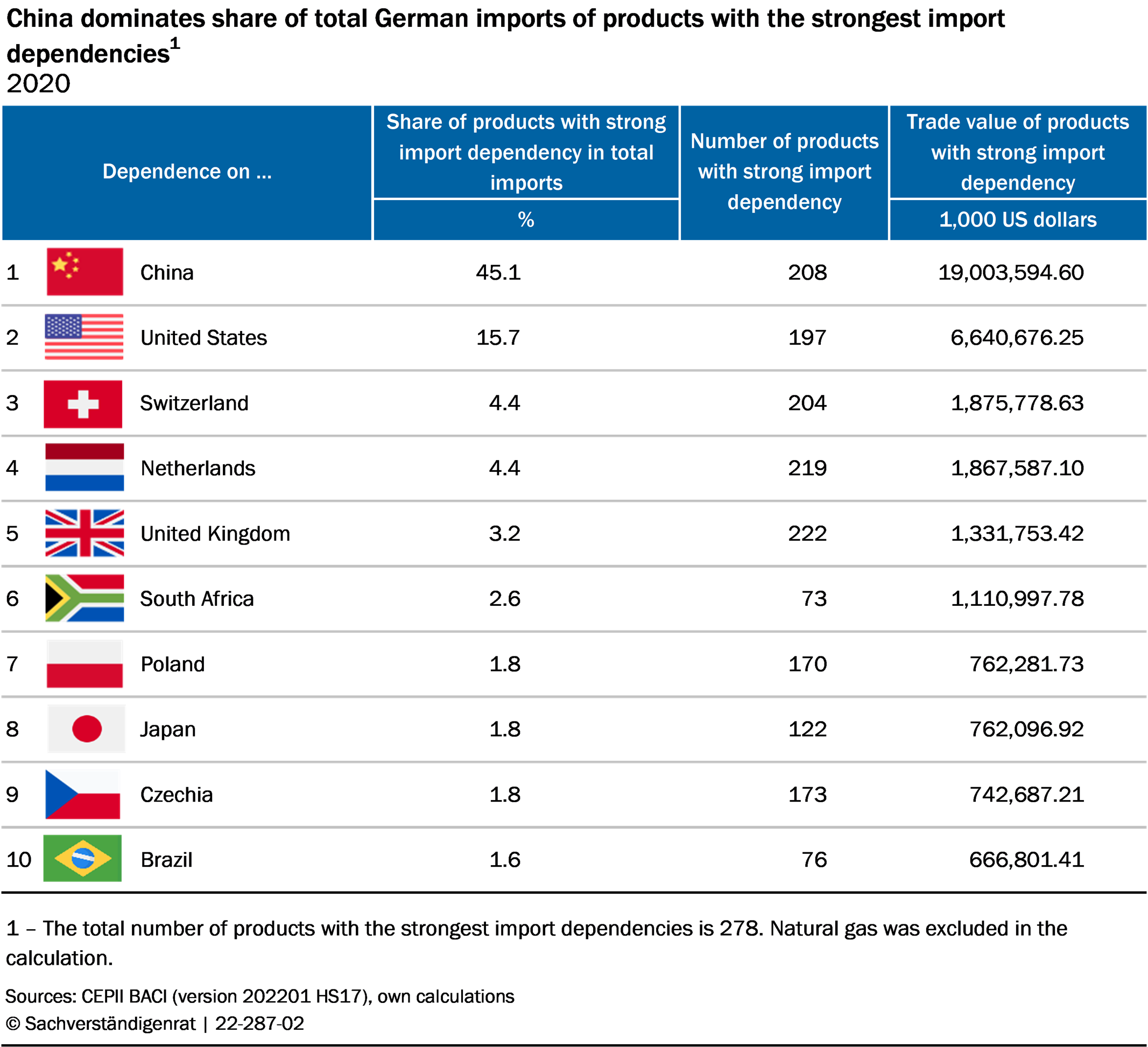- The German economic model is largely based on its tight integration into the global economy. However, there are critical dependencies.
- Dependence on energy imports and critical raw materials should be reduced as quickly as possible by diversifying sources of supply and expanding domestic production and storage capacities.
- Europe should strengthen its strategic autonomy without restricting openness in foreign trade.
In view of the geopolitical changes, the member states of the European Union should jointly defend European interests and values more forcefully and strengthen their strategic autonomy. This applies particularly to the supply of critical raw materials and energy sources. After all, dependencies on energy imports or critical raw materials pose major challenges to Germany's trade-oriented economic model.
"Germany must adapt to the new reality," says council member Veronika Grimm. "In order to reduce dependencies and increase the resilience of value chains, energy imports as well as the sources of critical raw materials should urgently be diversified." The responsibility for these efforts lies primarily with companies, but the government should provide targeted support for diversification. Strategic alliances, trade agreements or guarantees for German companies investing in third countries can steer such efforts in the right direction. Untied Loan Guarantees can help secure long-term supply contracts for raw materials.
European production capacities need to be expanded to reduce dependencies in strategically important areas. Above all, this applies to the expansion of renewable energies and the domestic extraction of critical raw materials. In addition, the storage of products of overriding strategic importance should be increased. If the tax disadvantage for warehousing were abolished, companies would have a larger incentive to keep higher levels of inventories.
Geopolitical shifts should be countered by strengthening European interests and values. The public discourse should better highlight the advantages of direct democratic systems. The EU should firmly oppose protectionist tendencies and trade-distorting practices, such as subsidies by third countries. At the same time, it is important to remain open towards third countries, especially when it comes to providing global public goods such as climate protection or public health. Germany and Europe have also benefited considerably from the growing international division of labour. Isolation from third countries can induce political and economic risks.

